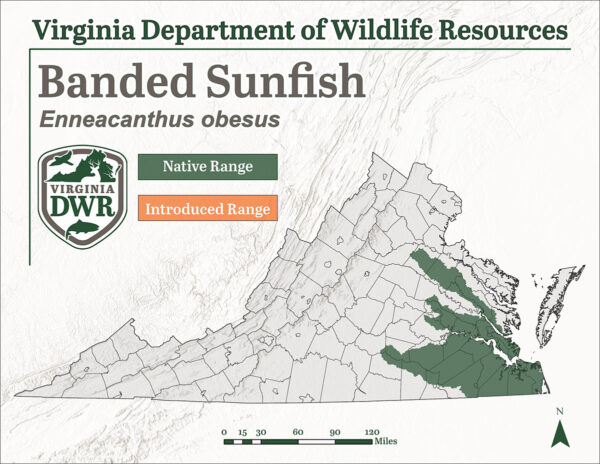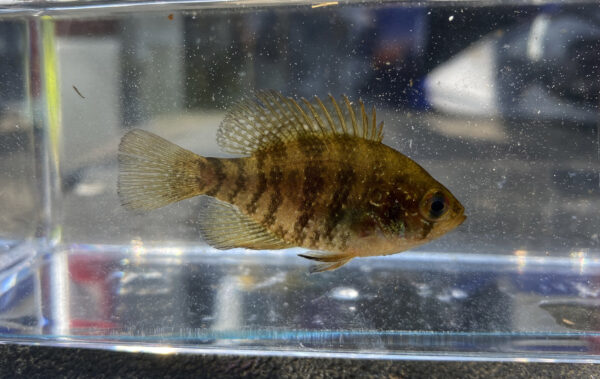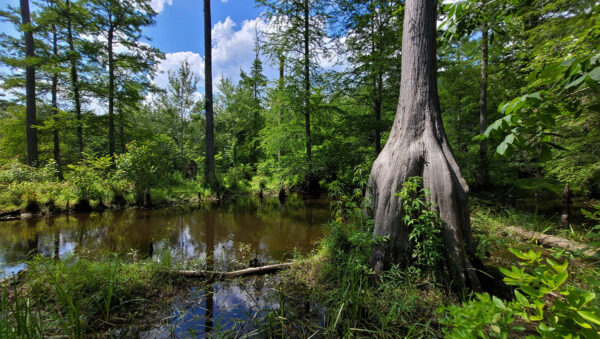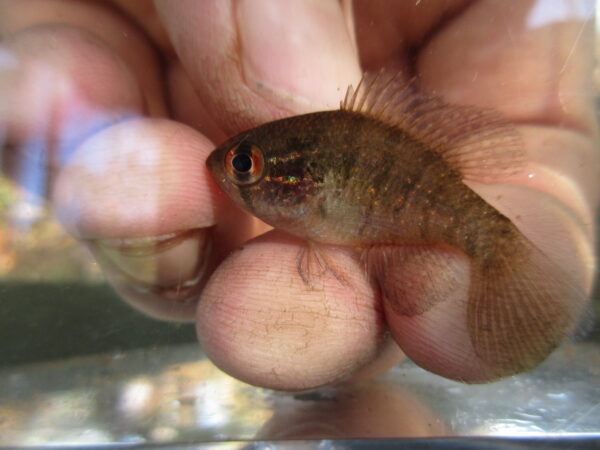A large Banded Sunfish being held in an observation tank. ©Photo by Dootin Branch
A Banded Sunfish captured during a population monitory survey. ©Photo by Maddie Cogar - DWR
Fact File
Scientific Name: Enneacanthus obesus
Classification: Fish, Order Perciformes, Family Centrarchidae
Conservation Status:
- Species of Greatest Conservation Need-Tier 4c on the Virginia Wildlife Action Plan
Size: Banded Sunfish rarely exceed 3 inches in length within Virginia waters
Life Span: Banded Sunfish can live for about 4 years in Virginia
Identifying Characteristics
- Body shape is moderately deep, laterally compressed
- Line(s) of bright blue around, below, and near the eye
- Rounded caudal and pectoral fins
- A black bar extends vertically through the eye
- Vertical bars present along the body
- Opercular gill spot larger than its eye pupil
- Many iridescent blue to green spots throughout the body
Diet
Banded Sunfish are opportunistic omnivores, feeding on whatever prey item is most readily available to them.
Distribution:
Banded Sunfish are native to the coastal plain of southeastern Virginia. They occur within the York, James, and Chowan watersheds.

Habitat
Banded Sunfish inhabit areas with dense submerged aquatic vegetation. They can thrive in the backwaters of Virginia’s large brackish tidal rivers, lower gradient piedmont streams, as well as the swamps and ponds that dot the landscape of the coastal plain region. Banded Sunfish, like other Enneacanthus species, do well in acidic waters that have minimal levels of dissolved oxygen.
Reproduction
Banded Sunfish spawn in early summer in Virginia. Banded Sunfish are colonial nesters, where a number of individuals will create several small depressions in schools near and within submerged aquatic vegetation. Like other sunfishes, male Banded Sunfish generally guard the nest until their young disperse.
Last updated: July 16, 2025
The Virginia Department of Wildlife Resources Species Profile Database serves as a repository of information for Virginia’s fish and wildlife species. The database is managed and curated by the Wildlife Information and Environmental Services (WIES) program. Species profile data, distribution information, and photography is generated by the Virginia Department of Wildlife Resources, State and Federal agencies, Collection Permittees, and other trusted partners. This product is not suitable for legal, engineering, or surveying use. The Virginia Department of Wildlife Resources does not accept responsibility for any missing data, inaccuracies, or other errors which may exist. In accordance with the terms of service for this product, you agree to this disclaimer.




